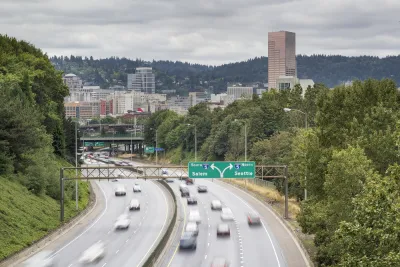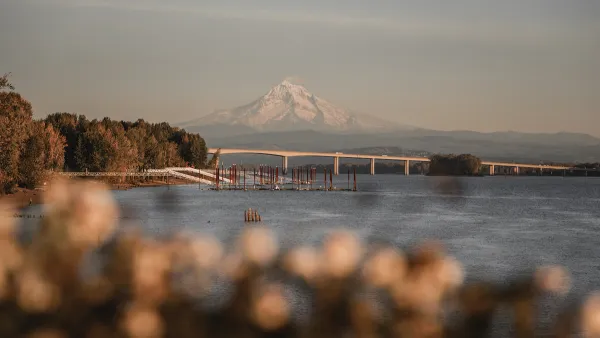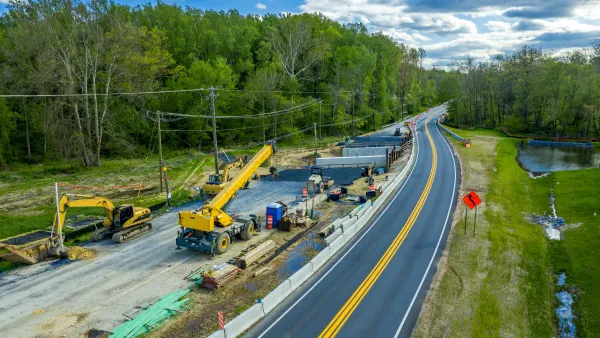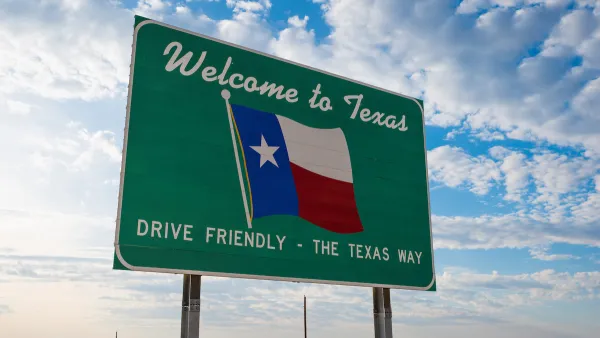A group of young climate activists are demanding an end to traffic-inducing road expansion projects and a renewed commitment to sustainable, transit-oriented transportation.

On the heels of a historic heat wave that devastated the Northwest, a group of Portland teenagers is protesting the Oregon DOT's plan to widen highways in the state, reports Laura Bliss. The protesters, who call their group Youth Vs. ODOT, are calling on the state to end freeway widening projects that contribute to increased congestion and carbon emissions.
Their demands might be having an effect, writes Bliss. "On Jan 18, the Federal Highway Administration rescinded a key approval of the controversial highway widening that’s been a prime target of the young protesters, the Rose Quarter Improvement Project along Portland’s Interstate 5," and requested a new environmental study.
As state transportation departments prepare to receive billions in federal funding, transportation advocates hope that sustainability will remain a top priority and that states will invest in public transit, bike lanes, and pedestrian infrastructure. But a slew of expansion projects planned around the country indicate these goals may not materialize.
The young Portland activists say by going forward with road projects, the city isn't living up to its progressive, bike-loving image. They call for increased investment in public transit, which would benefit more residents and help suburban dwellers reach the city more easily and efficiently. They want to see a change in the auto-oriented culture of Portland and, more broadly, the United States, which has enabled and subsidized car-dependent lifestyles. Even switching to electric vehicles, experts say, won't be enough to keep global warming from reaching catastrophic levels. Beyond stopping road expansion projects, Youth Vs. ODOT hopes to force even more drastic changes in how their state funds and prioritizes transportation projects.
FULL STORY: The Road Warriors

Analysis: Cybertruck Fatality Rate Far Exceeds That of Ford Pinto
The Tesla Cybertruck was recalled seven times last year.

National Parks Layoffs Will Cause Communities to Lose Billions
Thousands of essential park workers were laid off this week, just before the busy spring break season.

Retro-silient?: America’s First “Eco-burb,” The Woodlands Turns 50
A master-planned community north of Houston offers lessons on green infrastructure and resilient design, but falls short of its founder’s lofty affordability and walkability goals.

Test News Post 1
This is a summary

Analysis: Cybertruck Fatality Rate Far Exceeds That of Ford Pinto
The Tesla Cybertruck was recalled seven times last year.

Test News Headline 46
Test for the image on the front page.
Urban Design for Planners 1: Software Tools
This six-course series explores essential urban design concepts using open source software and equips planners with the tools they need to participate fully in the urban design process.
Planning for Universal Design
Learn the tools for implementing Universal Design in planning regulations.
EMC Planning Group, Inc.
Planetizen
Planetizen
Mpact (formerly Rail~Volution)
Great Falls Development Authority, Inc.
HUDs Office of Policy Development and Research
NYU Wagner Graduate School of Public Service




























